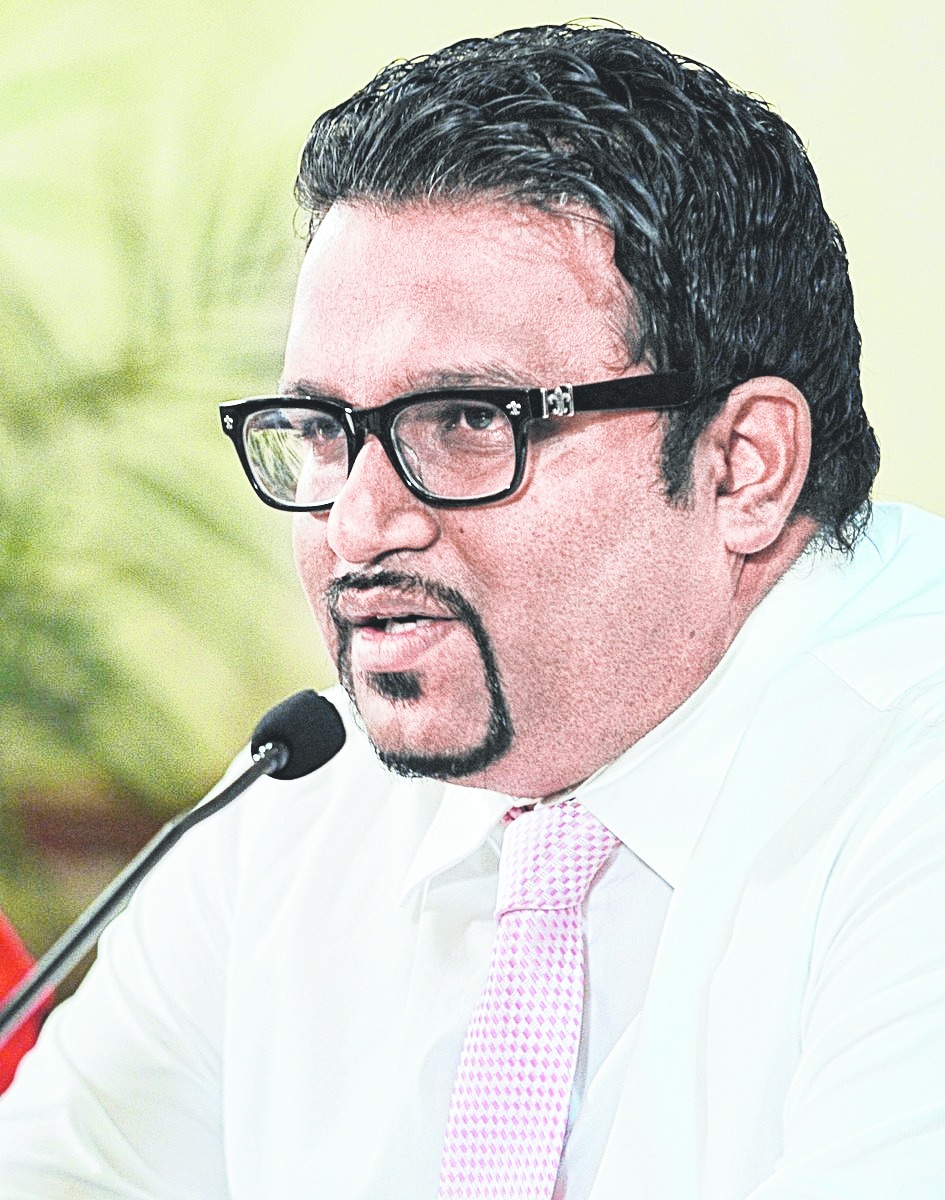
Male, Nov. 5 (Reuters): The parliament in the Maldives impeached the vice-president today over his alleged role in a blast on the President's speedboat, a day after the government declared a state of emergency that was condemned by the international community.
The decree has deepened turmoil engulfing the Indian Ocean archipelago following the blast on President Abdulla Yameen's speedboat, which the government said was an assassination attempt.
Ahmed Adeeb, who was detained in connection with the September 28 explosion, was impeached after 61 members of the 85-member parliament voted in favour.
Home minister Umar Naseer said Adeeb would be removed from office and Yameen can appoint a replacement.
The move came as security was tightened in the capital Male, with troops patrolling the streets two days before a planned protest by the main Opposition party.
Today's extraordinary session also saw the lawmakers approving the controversial 30-day state of emergency that Yameen declared yesterday, giving sweeping powers to security forces while suspending right to freedom of movement and assembly after arms and explosives were found near his palace.
Yameen had declared the state of emergency, saying the explosion and subsequent discovery of arms posed a threat to national security.
The parliamentarians debated the no-confidence motion filed against Adeeb, 33, for two hours before it was put up for vote, Haveeru newspaper reported.
Adeeb is the second vice-president to be impeached in less than six months.
He became vice-president in July after the impeachment of his predecessor Mohamed Jameel, who had fallen out with the President.
Adeeb will be charged under the recently passed anti-terrorism law, Naseer was quoted as saying. If found guilty Adeeb could face up to 25 years in jail.
"Now the vice-president is out of office and we will charge him under the recent terrorism law," Naseer said.
The declaration of emergency came ahead of a planned protest by the main Opposition group aimed at pressurising Yameen to release its leader and former President Mohamed Nasheed from jail after a widely criticised conviction under anti-terror laws.
Yameen after declaring emergency immediately fast-tracked his deputy's impeachment by slashing to just seven the constitutionally-mandated 14 days' notice period to respond to the no-confidence motion filed against the vice- president.
Adeeb was arrested on October 25 after his return from an official visit to China and taken to the police detention centre in the island of Dhoonidhoo for allegedly orchestrating the September 28 blast when Yameen and First Lady Fathimath Ibrahim were returning home after performing Haj.
The President escaped unhurt, but the First Lady suffered a spinal fracture and is still in hospital.
The US, the Commonwealth and rights groups have called on the Maldives to lift its state of emergency and end a crackdown on dissidents.
The FBI, asked to examine the scene of the speedboat blast, said there was "no conclusive evidence" that a bomb had exploded, raising doubts over its cause.
The US state department said in a statement issued late yesterday it was "deeply concerned" by the state of emergency.
"The US calls on the government of Maldives to restore immediately full constitutional freedoms to its citizens by terminating the state of emergency, and reiterates its call for an end to politically motivated prosecutions and detentions," it said.
Rights group Amnesty International said the government should not use the order to silence free speech or infringe on other human rights.
"The emergency must not be a precursor to a further crackdown on dissent or other human rights violations.
"The government should not use this state of emergency to silence free speech or infringe on other human rights," said Abbas Faiz, Amnesty International's Maldives Researcher.











